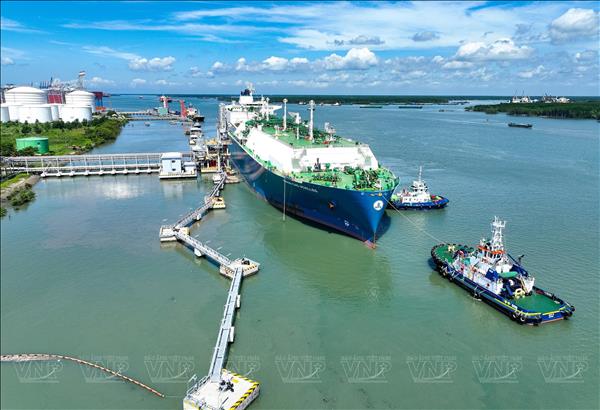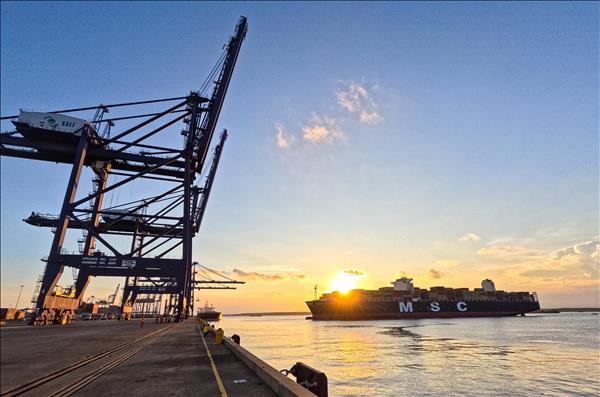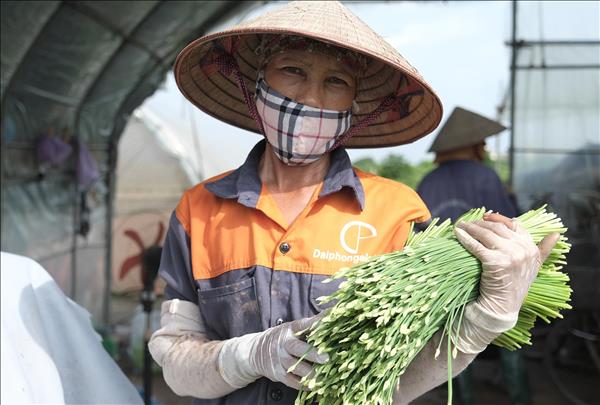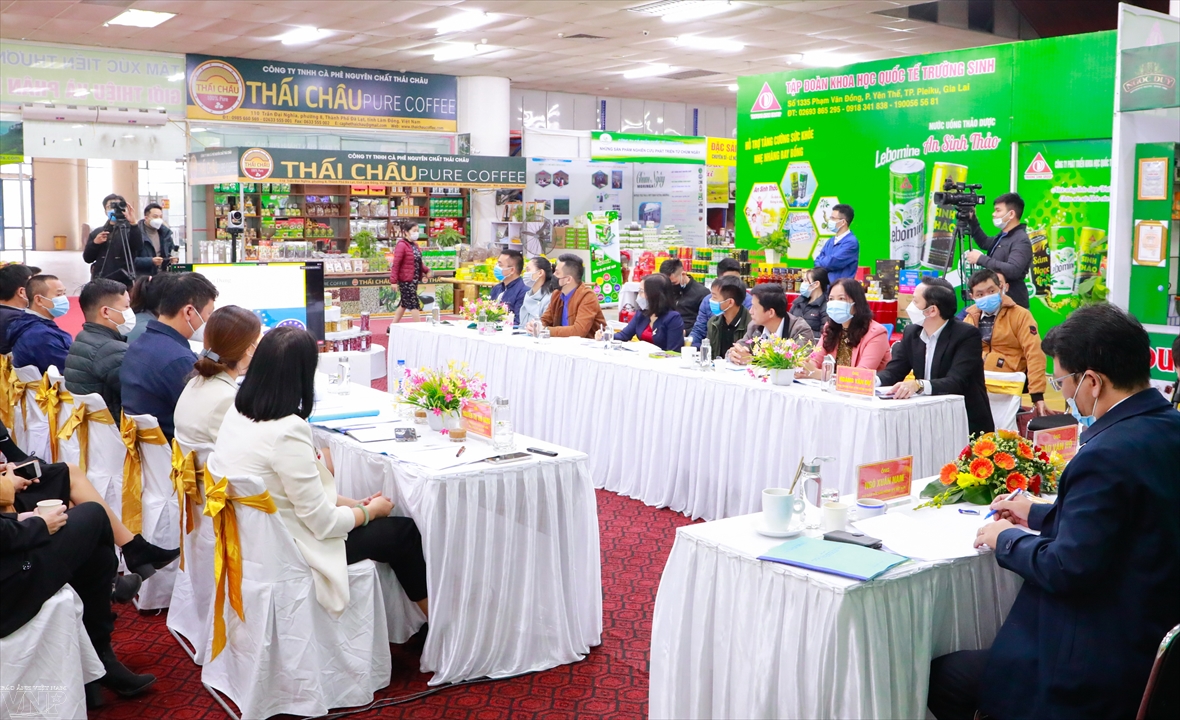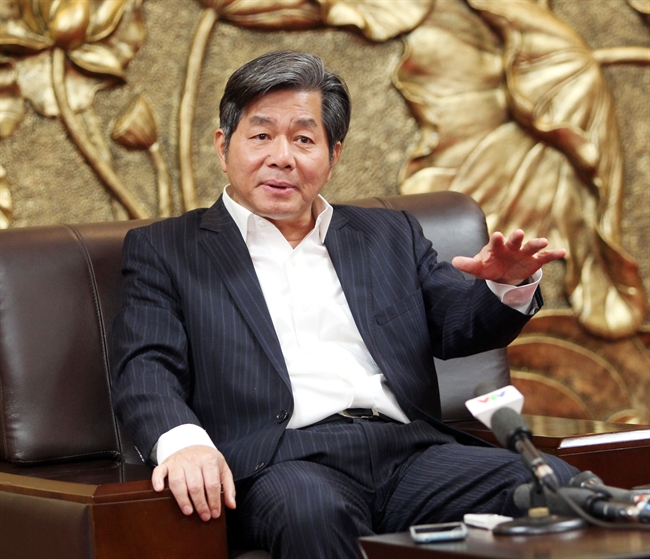
Minister of Planning and Investment Bui Quang Vinh. Photo: Duc Tam/VNA
Reporter: The year 2015 marked an important turning point of Vietnam’s economy in international integration, so what challenges will Vietnam face?
Minister Bui Quang Vinh: Vietnam has actively participated in negotiations to sign Free Trade Agreements so Vietnam’s economy will integrate more intensively into the world’s economy in 2016.
When Vietnam joined the ASEAN Community, including the ASEAN Economic Community (AEC) on December 31, 2015, it faced three challenges, including the free movement of products, investment and high-skilled labour. This means that qualified professionals can apply for jobs in other ASEAN countries and companies can search for qualified personnel from the community to meet their staffing needs. Without higher competitiveness, Vietnamese people may lose jobs right in “their playing field” and the recent recruitment of Vietnam Airlines’s flight attendants is proof. Previously, the national airline only recruited their staff in country, now it can look for candidates from different countries in ASEAN.
Furthermore, in 2016 Vietnam will start implementing the Vietnam - RoK Free Trade Agreement which takes effect since January 1, 2016 and the Vietnam - EAEU Free Trade Agreement to be concluded, excluding the upcoming FTAs between Vietnam-EU and TPP, which will be a big issue and mark a turning point of Vietnam’s economy in international integration.
Reporter: How will the international integration have impacts on Vietnam’s economy in the future? What have the Vietnamese Government and enterprises done to prepare to seize opportunities from FTAs?
Minister Bui Quang Vinh: The National Assembly, economic experts and the mass media have spent much time talking about this issue. I think that there are two viewpoints. One believes that both the Vietnamese Government and enterprises have prepared well for challenges and opportunities whereas the other says that Vietnam needs a more specific plan to help sectors and enterprises broaden knowledge and be fully aware of the international process, so they can take full advantage of opportunities and prepare readily for overcoming challenges.
I am saying so because FTAs are different from each other and every sector like the garment and textile sector, agricultural sector and electronic sector, will face its own difficulties and challenges so it must point out strengths and weakness and have a sound evaluation on their foreign rivals in the region.
I take the Vietnam-RoK FTA as an example. It is necessary to evaluate RoK’s strengths and weakness in comparison with Vietnam’s, its impacts on Vietnam and Vietnam’s opportunities for export to RoK. They are concrete issues and Vietnam only addressed some basic issues related to providing information for enterprises and sectors, but has not implemented sufficiently what I have mentioned above.
It is necessary to work with associations and enterprises to build mechanisms and policies to strengthen its internal forces and draft a plan in detail to seize opportunities and overcome challenges. The government, ministries and sectors must make more effort because Vietnam still has time and the largest FTA that Vietnam will have to implement is the Vietnam-EU FTA and TPP.
Reporter: Many people think that private enterprises and small-medium sized enterprises enjoy less incentives than foreign-invested ones. What do you think about these opinions?
Minister Bui Quang Vinh: I think that the Vietnamese Government has paid much attention to all economic elements and does its utmost to help this business sector. Besides, the National Assembly and the whole political system have also participated. It can be seen through a series of laws, namely the Law on Investment, the revised Law on Enterprises and the amended Tax Law which prioritise private enterprises and small-medium sized enterprises. Therefore, saying that the private, and small- medium sized enterprises enjoy less priorities than the foreign-invested ones is only correct in a certain aspect, not in all because the laws are for all economic sectors. For instance, the Law on High Technology is abided by both domestic and foreign-invested enterprises. The problem is if domestic enterprises are capable and have enough conditions to enjoy priorities from this law and register to implement it. However, only foreign-invested enterprises – the world’s leading groups with high quality-products can meet the requirements.
Minister Bui Quang Vinh: Vietnam has actively participated in negotiations to sign Free Trade Agreements so Vietnam’s economy will integrate more intensively into the world’s economy in 2016.
When Vietnam joined the ASEAN Community, including the ASEAN Economic Community (AEC) on December 31, 2015, it faced three challenges, including the free movement of products, investment and high-skilled labour. This means that qualified professionals can apply for jobs in other ASEAN countries and companies can search for qualified personnel from the community to meet their staffing needs. Without higher competitiveness, Vietnamese people may lose jobs right in “their playing field” and the recent recruitment of Vietnam Airlines’s flight attendants is proof. Previously, the national airline only recruited their staff in country, now it can look for candidates from different countries in ASEAN.
Furthermore, in 2016 Vietnam will start implementing the Vietnam - RoK Free Trade Agreement which takes effect since January 1, 2016 and the Vietnam - EAEU Free Trade Agreement to be concluded, excluding the upcoming FTAs between Vietnam-EU and TPP, which will be a big issue and mark a turning point of Vietnam’s economy in international integration.
Reporter: How will the international integration have impacts on Vietnam’s economy in the future? What have the Vietnamese Government and enterprises done to prepare to seize opportunities from FTAs?
Minister Bui Quang Vinh: The National Assembly, economic experts and the mass media have spent much time talking about this issue. I think that there are two viewpoints. One believes that both the Vietnamese Government and enterprises have prepared well for challenges and opportunities whereas the other says that Vietnam needs a more specific plan to help sectors and enterprises broaden knowledge and be fully aware of the international process, so they can take full advantage of opportunities and prepare readily for overcoming challenges.
I am saying so because FTAs are different from each other and every sector like the garment and textile sector, agricultural sector and electronic sector, will face its own difficulties and challenges so it must point out strengths and weakness and have a sound evaluation on their foreign rivals in the region.
I take the Vietnam-RoK FTA as an example. It is necessary to evaluate RoK’s strengths and weakness in comparison with Vietnam’s, its impacts on Vietnam and Vietnam’s opportunities for export to RoK. They are concrete issues and Vietnam only addressed some basic issues related to providing information for enterprises and sectors, but has not implemented sufficiently what I have mentioned above.
It is necessary to work with associations and enterprises to build mechanisms and policies to strengthen its internal forces and draft a plan in detail to seize opportunities and overcome challenges. The government, ministries and sectors must make more effort because Vietnam still has time and the largest FTA that Vietnam will have to implement is the Vietnam-EU FTA and TPP.
Reporter: Many people think that private enterprises and small-medium sized enterprises enjoy less incentives than foreign-invested ones. What do you think about these opinions?
Minister Bui Quang Vinh: I think that the Vietnamese Government has paid much attention to all economic elements and does its utmost to help this business sector. Besides, the National Assembly and the whole political system have also participated. It can be seen through a series of laws, namely the Law on Investment, the revised Law on Enterprises and the amended Tax Law which prioritise private enterprises and small-medium sized enterprises. Therefore, saying that the private, and small- medium sized enterprises enjoy less priorities than the foreign-invested ones is only correct in a certain aspect, not in all because the laws are for all economic sectors. For instance, the Law on High Technology is abided by both domestic and foreign-invested enterprises. The problem is if domestic enterprises are capable and have enough conditions to enjoy priorities from this law and register to implement it. However, only foreign-invested enterprises – the world’s leading groups with high quality-products can meet the requirements.
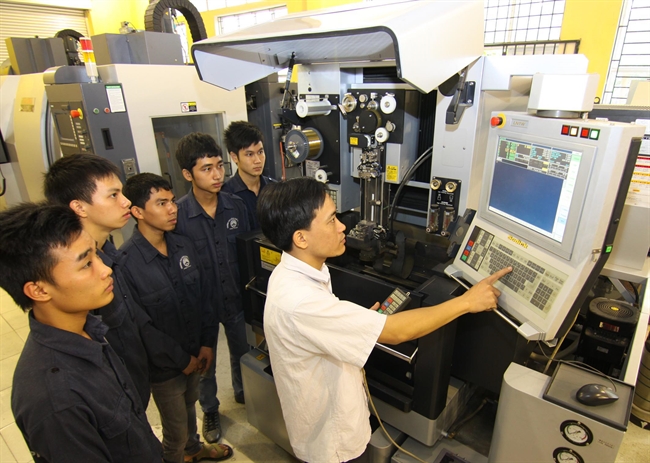
Vietnam will be definitely affected by the free flow of skilled labour in ASEAN. Photo: Anh Tuan/VNA
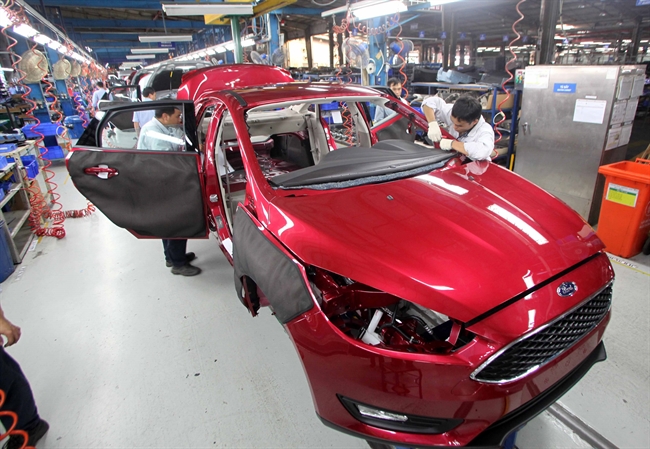
The auto production and assembling sector may be put under pressure from imported cars. Photo: Tran Viet/VNA
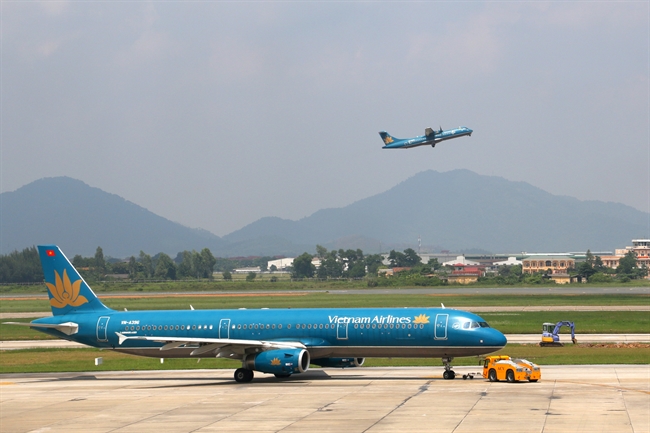
The establishment of ASEAN Community will affect the employment of Vietnam’s aviation sector. Photo: Duy Khuong/VNA
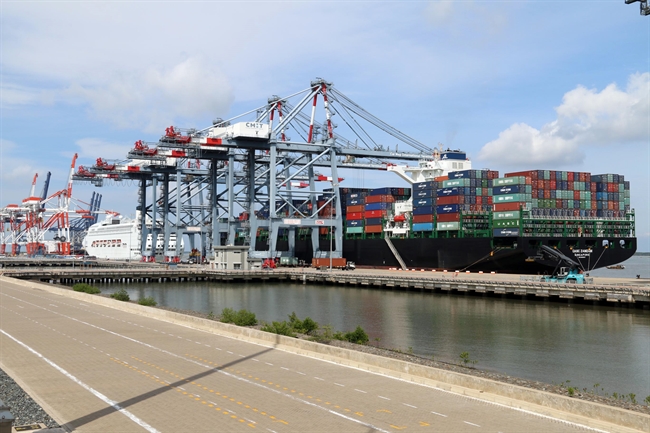
Entering the ASEAN Community, Vietnam will face challenges of the free movement of goods within the bloc.
Photo: Doan Manh Duong - VNA
Reporter: How does the Ministry of Planning and Investment consult the government to build a legal framework to create conditions for private enterprises’ development?
Minister Bui Quang Vinh: I agree with the point of view that Vietnam had not paid adequate attention to implementing a strong legal framework for creating favorable conditions for the development of private enterprise and small-medium-sized enterprises. It is a problem that I am concerned about. Current support is still not enough and more incentives are needed to develop enterprises into a core force of the economy. Therefore, the Ministry of Planning and Investment wrote many laws, including those which create favourabe conditions for the development of enterprises, such as the Law on Investment and the revised Law on Enterprises. In 2015, the ministry was authorised by the Government to establish and manage a fund for small-medium sized enterprises which provides them with loans sourced from the State’s budget through trade banks.
The ministry is now making the draft for the law on supporting small-medium sized enterprises that receives a consensus from the National Assembly. At present, the draft committee is actively working to have the first draft for discussing incentives for small-medium sized enterprises. It also proposed to the government that it launch incubators to promote start-ups and support innovative ideas so that young businessmen and women can draw up an appropriate development strategy.
By VNA/VNP

